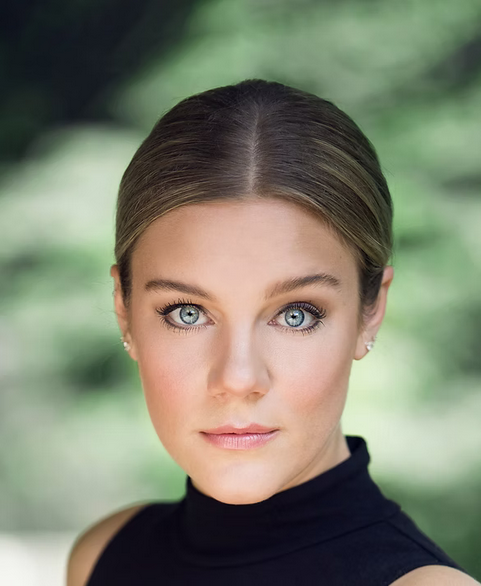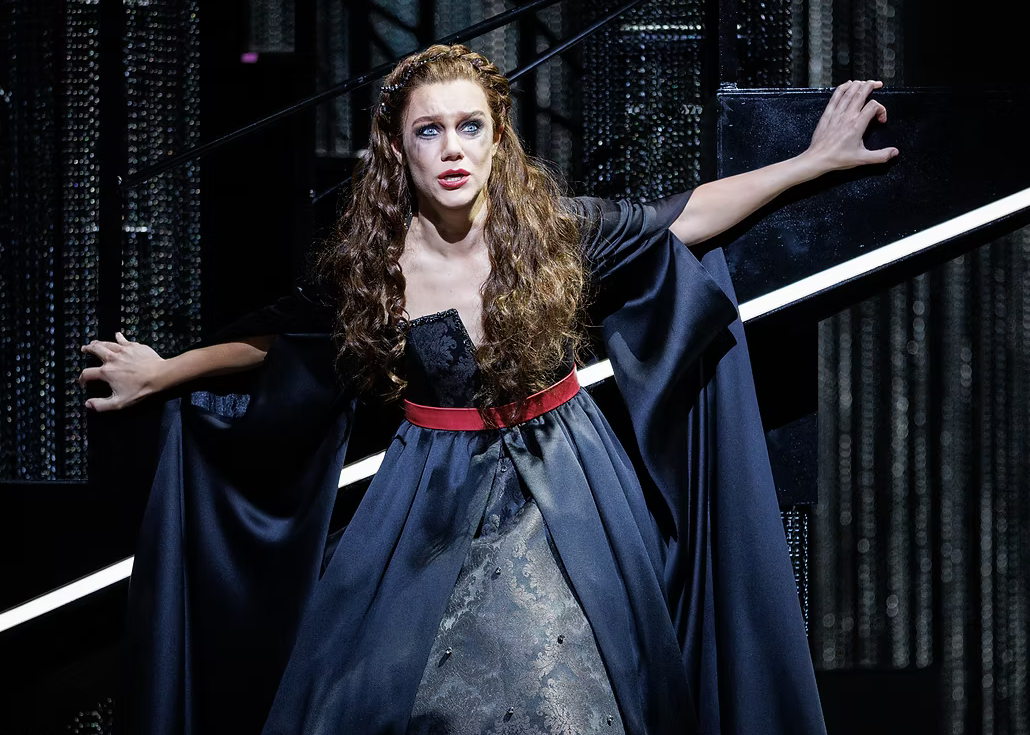People in the News
New Artist of the Month: Soprano Cadie J. Bryan
 It’s the oldest story in show business. A star drops out; a star is born. Counting down to the Bard SummerScape’s American stage premiere of Bedrich Smetana’s Dalibor, the contracted Polish prima donna (Izabela Matula) was stuck in visa limbo. Out went an S.O.S. to the 32-year-old American soprano Cadie J. Bryan, who just so happened to be on tour with Andrea Bocelli in Napa. Could she learn Milada? Wasting no time, Bryan grabbed her color-coded pencils and markers to prep the score, requisitioned rehearsal tracks from the master répétiteur Bethany Self, who delivered overnight, and started speaking her lines while plunking her notes out on the piano. Four days later, she had it down, went into rehearsal as Milada’s cover, and two weeks later joined the cast officially.
It’s the oldest story in show business. A star drops out; a star is born. Counting down to the Bard SummerScape’s American stage premiere of Bedrich Smetana’s Dalibor, the contracted Polish prima donna (Izabela Matula) was stuck in visa limbo. Out went an S.O.S. to the 32-year-old American soprano Cadie J. Bryan, who just so happened to be on tour with Andrea Bocelli in Napa. Could she learn Milada? Wasting no time, Bryan grabbed her color-coded pencils and markers to prep the score, requisitioned rehearsal tracks from the master répétiteur Bethany Self, who delivered overnight, and started speaking her lines while plunking her notes out on the piano. Four days later, she had it down, went into rehearsal as Milada’s cover, and two weeks later joined the cast officially.
“I guess they threw in the towel with the visa,” Bryan said recently over Zoom from her home in New York.
The would-be savior of her brother’s killer, Milada is a figure of contradictions yet never ambivalent. Shapeshifting from fury to angel of mercy, she also moonlights for awhile as a prison warden’s pet with a secret agenda—hence the occasional reference to Dalibor, which seldom travels, as the Czech Fidelio. Suiting the action to the word, the word to the action, glamorous as Vivien Leigh, Bryan blazed and caressed the music by turns. By the time-honored German Fach system, she seemed to slot in as a young dramatic (jugendlich dramatischer) soprano, on call for Wagner’s Eva, Elsa, and Elisabeth.
Taking her time
That’s not Bryan, at least not yet. Seven years out of school (a bachelor’s degree from Louisiana State University, a master’s from the Indiana University Jacobs School of Music, plus summers at Ravinia’s Steans Institute), the Baton Rouge native has been cultivating a much lighter Fach, to date entirely in the U.S. Interspersed with “a million Despinas, Susannas, and Zerlinas,” she has sung Musetta and the Rheingold Woglinde in Atlanta (with Götterdämmerung to follow this season) and covered Samantha Hankey’s Mélisande in Santa Fe in 2023. On what might as well be another planet, she auditioned for Bocelli with “O mio babbino caro,” singing to an empty arena with the crossover megastar accompanying her in person on a wobbly Casio keyboard. Then and there, he hired her as a guest on his tour, where she served up dazzlers like Juliet’s “Je veux vivre.”
“That tour,” Bryan says, “is one of the coolest things I’ve ever done.” She’s no less ebullient about her current job, covering Lauren Snouffer’s Sarah Kavalier in the Metropolitan Opera’s season opener The Amazing Adventures of Kavalier & Clay. “It’s epic!,” she says of the Mason Bates score. “I’m thrilled to be allowed to sit in the room and listen to it every day for the next few months.” It’s telling that she has programmed excerpts from Missy Mazzoli’s Breaking the Waves in recital. “I’m always eager to contribute to the current chapter of music history,” Bryan notes. “I love that there’s no entrenched performance tradition—you can make it your own without falling into the comparison game.”

As Milada in Smetana's Dalibor at Bard SummerScape
Outside Smetana’s homeland, that’s effectively the case with Dalibor, too. (In 1976, an English National Opera production featuring Anne Evans as Milada reportedly created a sensation; in 1977, Eve Queler’s Opera Orchestra of New York gave the score in concert, with Teresa Kubiak in the part.) “SummerScape originally hired a spinto soprano, so I wasn’t sure that I was what they were looking for,” Bryan says. “But everything happened so quickly! My manager said, ‘Look at this. What do you think?’ And I said, ‘Well, I don’t think I’ll hurt myself. I think I can sing it.’”
If Smetana’s heavy dependence on brass and on the chorus recalls Lohengrin, Leon Botstein’s full-blooded yet considerate reading of the score showed off Bryan’s arching line, smoothly integrated registers, and fine shadings of timbre as well as dynamics to thrilling advantage. Against a cohort of heavy male voices prioritizing the heroic mode, her soprano leaped out with apparent ease.
Dreams of grandeur
“I do think there's a bright, forward, dramatic quality to my voice,” Bryan allows, “but I’m in no rush to get hurt. I thought I could sing Dalibor, and I did, and it was a challenge, both vocally and dramatically, because of all the different colors. But it felt really good, which was a really important sign of what’s down the road for me.”
We talk about blue-sky prospects.
“I could say that I have dreams of grandeur,” Bryan says, “of singing all of the title roles and being the number one, the diva. But the roles that really draw me are the acting roles. As long as I can really tell a story and I won't hurt myself vocally, I'm in.”
Suppose she could choose five. Right now, what would they be?
“Mélisande,” Bryan says without hesitation. “And all the marathon roles really thrill me. Gounod’s Juliet. Violetta for sure. Manon, though I think she’s polarizing, I’m not sure why.”
Anything else?
“I can’t stop at five,” she says. “The Governess in The Turn of the Screw—that’s a dream acting role, Tatyana. Thaïs. Rusalka. Some people have said they can see me as the Donizetti queens, though I’ve always had a bit of a mental block about bel canto. It’s so exposed, and the long performance tradition, immortalized in countless exquisite recordings, sets an intimidatingly high bar.” She hasn’t sung Handel yet, but she’d like to. Cleopatra and Rodelina would be her first choices, speaking of high bars.
“And Arabella is definitely on my list,” she continues. “Learning ‘Das war sehr gut, Mandryka,’ really opened up my voice in a way that made it clear that maybe Mozart wasn't the end of the line for me.” Historically, of course, the Mozart-Strauss continuum has proved congenial to soprano legends galore, from Elisabeth Schwarzkopf and Gundula Janowitz on to Kiri Te Kanawa and Renée Fleming.
“But I’m in absolutely no rush,” Bryan hastens to add. “I really love singing Susanna! So, I want to do that as long as I possibly can.”





 FEATURED JOBS
FEATURED JOBS

 RENT A PHOTO
RENT A PHOTO


